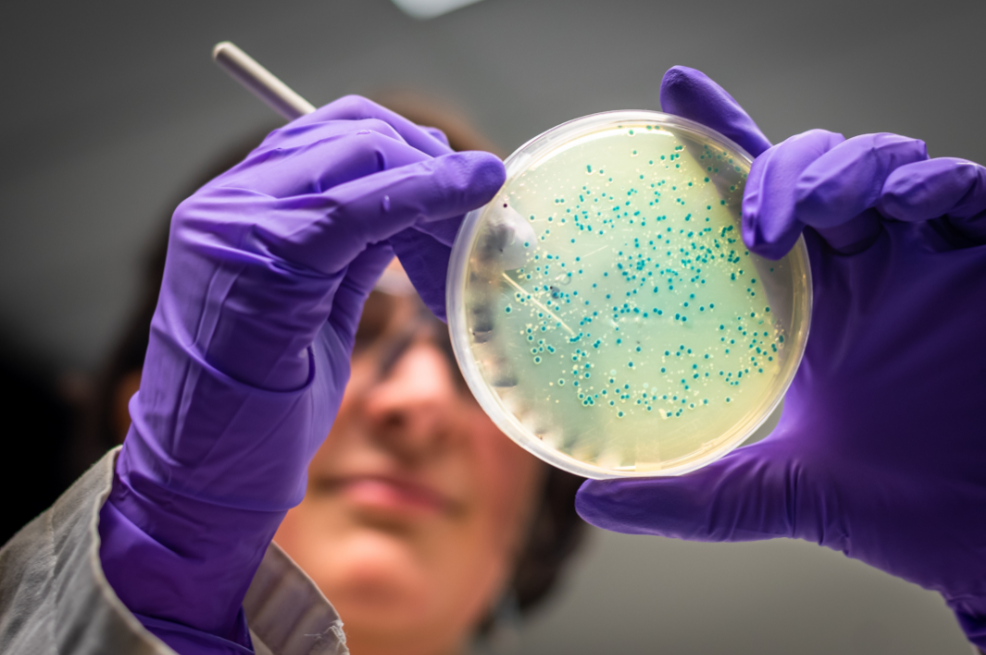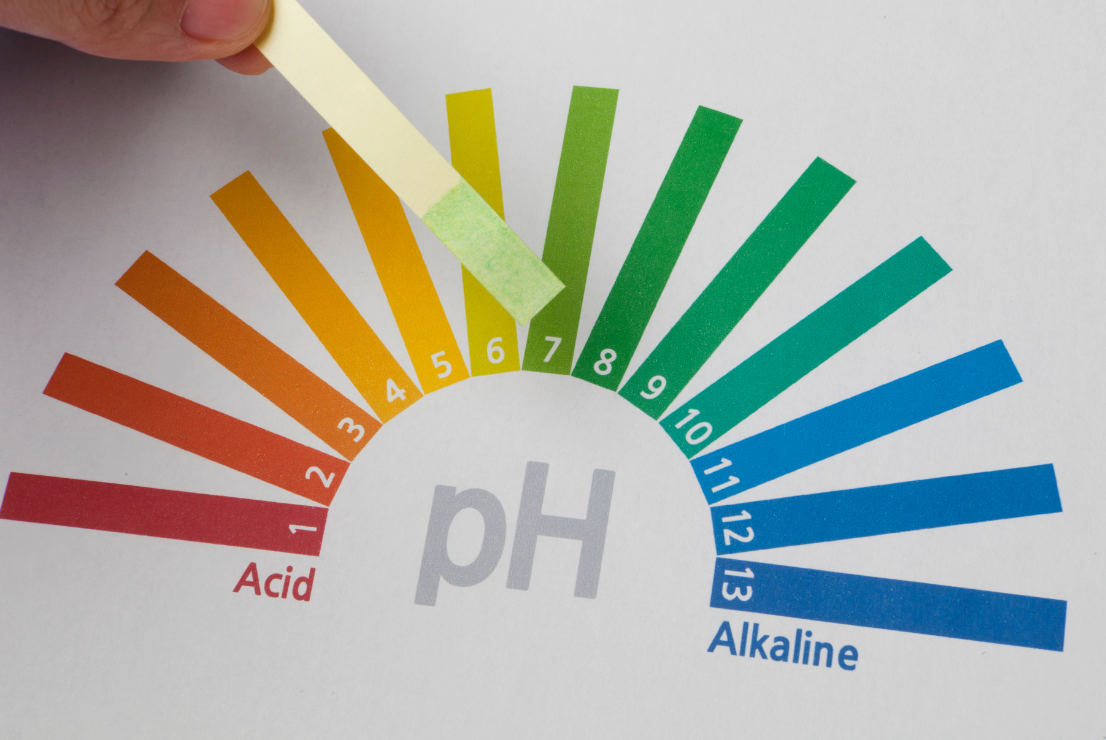From targeted washes such as Vagisil to normal shower gels and wipes there are many products that people with vulvas use daily that contain chemicals which can negatively affect their vaginal microbiome. Despite this, these products are sold without warning and some with unfounded promises of long-lasting odour protection.
Firstly, let’s break down what the vaginal microbiome actually is. Then we can discuss the ways in which chemicals affect your microbiome and finally ways to keep your vagina healthy.
The Vaginal Microbiome
The human body is host to trillions of bacteria, viruses, and fungi, otherwise known as microbes, which live in or on almost every part of our body, including our skin, gut and vagina. These microbes usually live in a balanced ecosystem, do not cause us any harm, and in many cases are essential to our existence.
The microbiome refers to the community of microbes that inhabit a particular environment, for example one of those environments being your vagina. The makeup of every microbiome is different, depending on the person and the location on your body. When it comes to the vagina, the microbiome should be mostly made up of the bacteria Lactobacillus in order to stay healthy, but the vaginal microbiome is subject to change over the menstrual cycle. The vaginal microbiome is also susceptible to change as a result of contact with materials ranging from body parts (genitals or fingers for example) to certain chemicals.
It is important to keep the good bacteria in your vagina happy, as they work to prevent infections, such as bacterial vaginosis, thrush and sexually transmitted infections. There are even studies that suggest a link between pregnancy complications such as preterm birth and the vaginal microbiome.
More on this below…

How do chemicals affect your vaginal microbiome?
Your vaginal microbiome is a delicate ecosystem which is very sensitive to change in environment. Your vagina should be kept at an acidic pH level in the range of 3.8 to 5.0 to keep its microbiome stable. The bacteria in your vagina also promote this acidic environment themselves, this acid then kills off unwanted microbes that may cause infection.
Many products have a different pH level to your vagina and therefore by introducing them into your vagina, they may alter the pH level required to keep your vaginal microbiome healthy. Even a small change in pH can have a massive impact on the microbes living there. There is evidence that introducing products into your vagina can inhibit the growth of friendly bacteria and even kill off bacteria in your vaginal microbiome.
The act of physically washing your vagina may also wash away vaginal secretions, which form a protective barrier for the vagina and its microbiome.

Advice and how to protect your vaginal microbiome
Ultimately your vagina is a self-cleaning machine and doesn’t need much maintenance to keep itself healthy. You should clean your vulva (remember this is the outer part of your vagina) just with plain warm water and you should not clean inside your vagina at all, especially not with soap or shower gels.
It is normal for your vulva to have a natural scent which is unique to you. This scent does not indicate that you are “unclean” or have an infection. There are many products sold on the idea of “freshness” and odour protection. However, as previously discussed these can be harmful to your vaginal microbiome and you should not feel shame around your vulva having a natural scent.
Contraception and your vaginal microbiome
There is some evidence that contraception can alter your vaginal microbiome. A few studies suggest that people who take combined oral contraceptives or the hormonal contraceptive injection are less likely to experience infections, such as bacterial vaginosis, than people who use other forms of contraception. There is also some evidence that copper intrauterine devices, such as the copper coil, may increase the chances of bacterial vaginosis infection.
Ultimately, there is still not enough research into the effect of contraception on the vaginal microbiome, but this is something we hope will change in the near future.
What to do if you feel something isn’t right?
Although it is normal for your vulva to have a natural odour, a change in smell or discharge could be indicative of an underlying medical condition. If you notice a very strong/unpleasant smell, a change in discharge or something just doesn’t feel right, seek medical advice from your doctor (eg. GP).
Further information around vaginal discharge and odour can be found on the NHS website here.
Vaginal Microbiome Tests
If you struggle with frequent vaginal infections, are trying to conceive, are currently pregnant or are going through the menopause, it may be worthwhile taking a vaginal microbiome test. These tests provide an in depth analysis of your microbiome, breaking down the types of microbes present in your vagina and their quantities. These tests can provide useful information on the potential causes of vaginal infections and therefore inform appropriate treatments. Some companies such as Juno Bio are now offering these tests for online purchase!
1. Institute NGR. Microbiome 2022 [updated May 10, 2022; cited 2022 01/11/2022]. Available from: https://www.genome.gov/genetics-glossary/Microbiome.
2. Chen X, Lu Y, Chen T, Li R. The Female Vaginal Microbiome in Health and Bacterial Vaginosis. Front Cell Infect Microbiol. 2021;11:631972.
3. Freitas AC, Bocking A, Hill JE, Money DM, Money D, Bocking A, et al. Increased richness and diversity of the vaginal microbiota and spontaneous preterm birth. Microbiome. 2018;6(1):117.
4. Fettweis JM, Serrano MG, Brooks JP, Edwards DJ, Girerd PH, Parikh HI, et al. The vaginal microbiome and preterm birth. Nat Med. 2019;25(6):1012-21.
5. Lin YP, Chen WC, Cheng CM, Shen CJ. Vaginal pH Value for Clinical Diagnosis and Treatment of Common Vaginitis. Diagnostics (Basel). 2021;11(11).
6. Fashemi B, Delaney ML, Onderdonk AB, Fichorova RN. Effects of feminine hygiene products on the vaginal mucosal biome. Microb Ecol Health Dis. 2013;24.
7. Balle C, Konstantinus IN, Jaumdally SZ, Havyarimana E, Lennard K, Esra R, et al. Hormonal contraception alters vaginal microbiota and cytokines in South African adolescents in a randomized trial. Nat Commun. 2020;11(1):5578.
8. Brooks JP, Edwards DJ, Blithe DL, Fettweis JM, Serrano MG, Sheth NU, et al. Effects of combined oral contraceptives, depot medroxyprogesterone acetate and the levonorgestrel-releasing intrauterine system on the vaginal microbiome. Contraception. 2017;95(4):405-13.
9. Fosch SE, Ficoseco CA, Marchesi A, Cocucci S, Nader-Macias MEF, Perazzi BE. Contraception: Influence on Vaginal Microbiota and Identification of Vaginal Lactobacilli Using MALDI-TOF MS and 16S rDNA Sequencing. Open Microbiol J. 2018;12:218-29.
10. Achilles SL, Austin MN, Meyn LA, Mhlanga F, Chirenje ZM, Hillier SL. Impact of contraceptive initiation on vaginal microbiota. American Journal of Obstetrics and Gynecology. 2018;218(6):622.e1-.e10.
11. NHS. Vaginal discharge 2021 [updated 25 January 2021. Available from: https://www.nhs.uk/conditions/vaginal-discharge/.
Article edited by Fiona Kennedy, MSc
Reviewed by Dr.Paulina Cecula